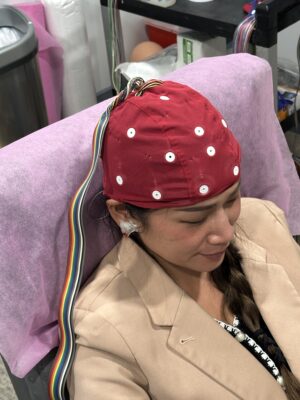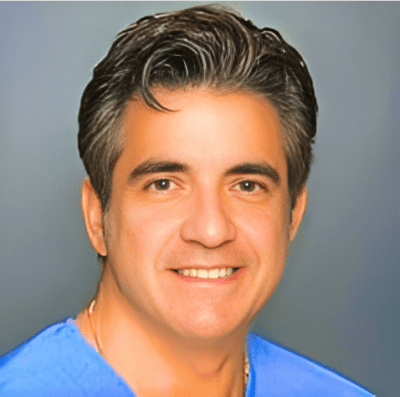Understanding Brain Mapping
Who Interprets a QEEG Brain Map?
Integrative Care for Concussion / Head Injury Sufferers
in Ft. Lauderdale, Tampa, and Orlando, Florida
What is a QEEG Brain Map and Who Can Accurately Interpret It?

QEEG Brain Mapping Interpretation by Physiologist/Neuropsychologist or QEEG Diplomat
In the world of neuroscience, one of the advanced tools used to understand brain function is the Quantitative Electroencephalogram (QEEG), often referred to as brain mapping. But who interprets these intricate brain maps, and why is their expertise crucial?
What is QEEG Brain Mapping?
A QEEG brain map is a detailed analysis of the electrical activity of the brain. It involves placing sensors on the scalp to record brainwave patterns and then using sophisticated software to analyze this data. The resulting brain map provides a visual representation of brain function, highlighting areas of normal and abnormal activity.
The Role of a Board-Certified Neurofeedback (BCN) Physiologist or QEEG Diplomat
Interpreting a QEEG brain map is no simple task. It requires a deep understanding of both the technology and the brain’s intricate workings. This is where a Board Certified Neurofeedback (BCN) Physiologist comes in. These professionals have extensive training and certification in neurofeedback and QEEG analysis. They are equipped with the skills needed to accurately interpret brain maps and provide meaningful insights.
Expertise at AT Radius TBI
At Radius TBI, the EEG recording and QEEG analysis are conducted by seasoned BCN Physiologist. These experts bring years of experience to the table, ensuring that each brain map is interpreted with precision. Their extensive background in QEEG interpretation allows them to identify subtle patterns and abnormalities that less experienced practitioners might overlook.
Why Experience Matters
The experience of a BCN Physiologist is crucial for several reasons:
- Accuracy: Years of interpreting brain maps enable therapists to make accurate assessments of brain function.
- Insight: Experienced therapists can provide deeper insights into the implications of the brain map, leading to more effective treatment plans.
- Customization: They can tailor neurofeedback therapy to the specific needs of the individual, optimizing outcomes based on the brain map’s findings.
The Process at AT Radius TBI
At Radius TBI, the process begins with a thorough EEG recording session, where the brain’s electrical activity is captured. This data is then analyzed by the BCN Physiologist, who creates a detailed QEEG brain map. The therapist interprets the map, identifying areas that may benefit from neurofeedback therapy. This interpretation forms the basis for a personalized treatment plan designed to improve brain function and overall well-being.
QEEG Brain Mapping Interpretation by Certified Physiologist/Neuropsychologist or QEEG Diplomat
Interpreting a QEEG brain map is a complex process that requires specialized training and experience. At Radius TBI, this task is entrusted to a board-certified neurofeedback physiologist who dedicated years to mastering QEEG analysis. Their expertise ensures that every brain map is accurately interpreted, providing valuable insights that guide effective treatment strategies. If you’re seeking to understand better your brain’s function, a QEEG brain map interpreted by an experienced BCN Physiologist is a crucial step on the journey to improved mental health.
Routine EEG, QEEG, and Ambulatory EEG are distinct forms of electroencephalography, each serving unique purposes in the diagnosis and monitoring of neurological conditions. Routine EEG provides a snapshot of brain activity, while QEEG adds a quantitative dimension for in-depth analysis. Ambulatory EEG, with its extended recording duration, is invaluable in capturing intermittent neurological events, offering a comprehensive view of brain function over an extended period. The combined use of these EEG variants enhances the ability of healthcare professionals to diagnose, monitor, and tailor treatment plans for patients with various neurological disorders.
Have you ever experienced brain fog, difficulty concentrating, or other cognitive issues? If so, you may benefit from a QEEG test. A non-invasive way of measuring brain activity. Contact us now!
DID YOU KNOW?
TBI is a major cause of death and life-long disability in the United States. (including all levels of severity)
- An estimated 1.5 million Americans sustain a TBI (Sosin, Sniezek and Thurman 1996);
- 50,000 die from these injuries; and 80,000 to 90,000 experience onset of long-term disability (CDC 1999).
- An estimated 5.3 million Americans live with a permanent TBI-related disability today (CDC 1999).
According to the report to Congress on mild traumatic brain injury in the United States. Centers for Disease Control and Prevention; 2003. https://www.cdc.gov/traumaticbraininjury
Blogs

Your Premier TBI/Concussion Center in Tampa, FL
At Radius TBI, our centers in Ft. Lauderdale, Tampa, and Orlando, Florida, we are dedicated to providing exceptional care tailored to individuals with head injuries. This blog will explore why choosing Radius TBI as your trusted TBI/Concussion Center is the

Why See Neuropsychologist After Head Injury?
A head injury can be a devastating event that can have long-lasting effects on a person’s life. Depending on the severity of the injury, a person may experience a range of physical, cognitive, and emotional symptoms that can significantly impact

Best Psychotherapist in Broward County and Neurofeedback Therapist
Your Trusted Best Choice for Neurofeedback Physiologist and One of the Best Psychotherapist in Broward County, FL.

What Happens To The Brain During A Concussion Or After a Car Crash?
Concussions are serious business from a traumatic injury to the brain caused by excessive force applied to your head or a sudden change in direction.

Dr. Eric F. Ciliberti: Our Best Neuro-ophthalmologist in Broward, County Location
Optimizing Visual Health: Meet Top Neuro-Ophthalmologist in Broward. Discover how Dr. Ciliberti enhances visual health at Radius TBI in Florida.

Meet our best Psychologists in Broward County, FL Location
This blog will highlight a group of exceptional psychologists – Dr. Ann Marie Paolino, Dr. Beatriz Amador, and Dr. Esther L. Misdraji – who specialize in helping TBI patients recover their lives. These dedicated professionals know the significance of psychological

The Road to Brain Recovery: Identifying the Best Neuropsychologist in Broward County, FL
The Road to Brain Recovery with Dr. Esther Misdraji: Identifying One of the Best Neuropsychologist in Broward County, FL

Identifying Personal Injury Risks and Traumatic Brain Injury at Radius TBI
Accidents can cause life-altering consequences, including traumatic brain injury (TBI). At Radius TBI, with locations in Ft. Lauderdale, Tampa, and Orlando, Florida, we prioritize early detection and comprehensive care for those who may have suffered a TBI. Protect your brain

Your Comprehensive Guide to Seeking the Right Car Accident Injury Doctors in Florida
Car accidents can be life-altering events, leaving victims with not only physical injuries but also emotional trauma. It’s crucial to take the right steps after a car accident, especially if you suspect internal brain injury or concussion. In Florida, where


